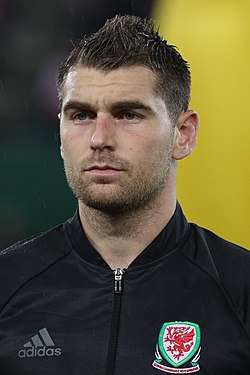
Burnley Football Club is an English professional association football club based in the town of Burnley, Lancashire. Founded on 18 May 1882, the club was one of the first to become professional (in 1883), putting pressure on the Football Association (FA) to permit payments to players. [1] In 1885, the FA legalised professionalism, so the team entered the FA Cup for the first time in 1885–86, and were one of the twelve founding members of the Football League in 1888–89. [1] Burnley have played in all four professional divisions of English football from 1888 to the present day. The team have been champions of England twice, in 1920–21 and 1959–60, have won the FA Cup once, in 1913–14, and have won the FA Charity Shield twice, in 1960 and 1973. Burnley are one of only five teams to have won all four professional divisions of English football, along with Wolverhampton Wanderers, Preston North End, Sheffield United and Portsmouth. They were the second to achieve this by winning the Fourth Division in the 1991–92 season.
Contents
- Honours and achievements
- League
- Cup
- Club records
- Season records
- Points
- Goals
- Clean sheets
- Match records
- Managerial records
- Player records
- Award winners
- Appearances
- Goalscorers
- Internationals
- Transfers
- Notes
- References
The list encompasses the honours won by Burnley, records set by the club, its managers and its players. The record for most games played for the club is held by Jerry Dawson, who made 569 appearances between 1907 and 1928. George Beel scored 188 goals during his Burnley career and is the club's record goalscorer. William Tait scored Burnley's first hat-trick in the Football League in 1888, which was also the first league hat-trick worldwide. Jimmy McIlroy made 51 appearances for Northern Ireland and so is the player who gained the most caps while with Burnley. The highest transfer fee paid by the club is the circa £23 million paid to Chelsea for Lesley Ugochukwu in 2025; the highest fee received is the £31 million paid by Manchester City for James Trafford in 2025. The highest attendance recorded at home ground Turf Moor was 54,775 for the visit of Huddersfield Town in a third round FA Cup match in 1924.
During the 2024–25 season, Burnley matched or broke several English league records, including the best defensive record in history (16 goals conceded in 46 matches, an average of 0.35 per game), the joint-most clean sheets (30, equalling Port Vale's 1953–54 side), becoming the first team to avoid conceding more than one goal in any league fixture, and the first to gain at least 100 points in a specific division (EFL Championship) on two occasions (101 in 2022–23 and 100 in 2024–25).
All records and statistics are correct as of the 2024–25 season.



